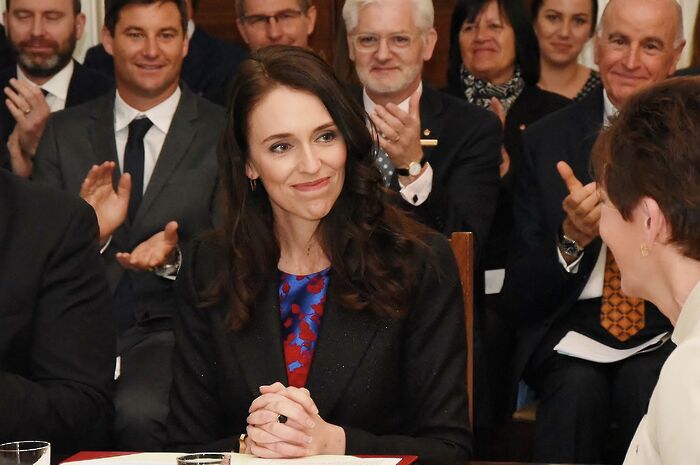Why is “having it all” only up for debate when a woman is in power?
Belle George reflects on the sexism surrounding the discussion of New Zealand Prime Minister Jacinda Ardern’s pregnancy as a woman in political office

Life is about sacrifices. “You can’t always get what you want” sings Mick Jagger. We can’t have it all. But many people do want both a family and a career. This is much easier to attain, however, if you are a man.
New Zealand Prime Minister Jacinda Ardern’s recent pregnancy announcement was greeted with various responses - many appropriately celebratory, but some with an undertone of judgement, questioning her ability to be both a supportive mother and a functional Prime Minister.
This topic of “having it all” would not even be up for a debate were Ardern a man. Such judgement of women’s roles has long perpetuated the inequality we face
The outdated view that women must choose between a career and motherhood has somehow maintained its ugly presence. In an article for Varisty last week, Connor Macdonald claimed that we need to recognise that neither men nor women can “have it all” in terms of parenthood and career. I disagree.
What this view doesn’t recognise is the unequal costs for men and women in relation to “doing it all”, and that judgement of people’s decisions to be a parent, a professional, or both, has always been, and remains, unequal based on their sex. You do have to make the choice to work or not. It is the judgements made by others after you make the choice that is unfair.
Presently, women just can’t seem to win, regardless of the decision they make. Housewives are judged for not having a ‘real job’ at the same time as stay-at-home husbands are praised for stoically supporting their wives’ professional careers. Women who have children and return to work soon after are ‘bad mothers’, while men are expected to take no more than a few days off following the birth of their child.
Having grown up in New Zealand with a retired, stay at home dad and a mum that worked full time, I have no qualms with Jacinda Ardern and her partner’s decision to have a child during Ardern’s first term as Prime Minister. My own experience of this dynamic was one of happiness, and of healthy family relationships. The idea that parents who choose to pursue their career are unable to form deep and precious bonds with their children is not only wrong, but an insult to hardworking mothers like my own.
In his column, Connor expresses how he knew in his teenage years that he wanted to have a “career orientated life” and how that decision necessitated finding a partner who will have time to be the primary caregiver. Whilst I respect this personal choice, it is a choice that is easier to make as a male, it is choosing the presumed path. But what about women? For whom breaking out of the presumed path is much more challenging? Such subtle sexism may help perpetuate the assumption that employers are right to not give women jobs or promotions due to the possibility of them having a child ‘primarily’ to look after in the near future.
Articles such as the one published in Varisty last week see through a male lens. I cannot help but to look through a female one, highlighting the unfairness of the debate Ardern’s pregnancy has sparked. There were no such dilemmas when Tony Blair or David Cameron fathered children during their respective terms as British Prime Ministers. This is simply because they are men.
In contrast, just hours into her new position as leader of the opposition Ardern was asked by two male talk show hosts about having to make a choice between her career and motherhood. Similar questions arose again, just a few days later. These questions, inappropriate in the first place, are only ever asked of women. This topic of “having it all” would not even be up for a debate were Ardern a man. Such judgement of women’s roles has long perpetuated the inequality we face. Saying that men also “can’t have it all” is a false comparison when one considers the huge difference in social stigma women, as contrasted with men, face in regards to their decisions on parenting and work.
No one should judge a woman’s decision to be a mother or a professional, a prime minister or a housewife. The previous First Lady Michelle Obama’s words seem prescient to me now, more than ever; “being a mother made me a better professional, because coming home every night to my girls reminded me what I was working for. And being a professional made me a better mother, because by pursuing my dreams, I was modelling for my girls how to pursue their dreams”.
 News / Uni Scout and Guide Club affirms trans inclusion 12 December 2025
News / Uni Scout and Guide Club affirms trans inclusion 12 December 2025 News / Cambridge Vet School gets lifeline year to stay accredited28 November 2025
News / Cambridge Vet School gets lifeline year to stay accredited28 November 2025 News / Cambridge study finds students learn better with notes than AI13 December 2025
News / Cambridge study finds students learn better with notes than AI13 December 2025 Science / Did your ex trip on King’s Parade? The science behind the ‘ick’12 December 2025
Science / Did your ex trip on King’s Parade? The science behind the ‘ick’12 December 2025 News / Pembroke to convert listed office building into accom9 December 2025
News / Pembroke to convert listed office building into accom9 December 2025








